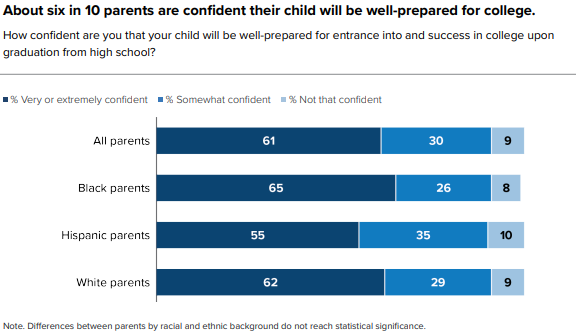Key Finding: More competition does not appear to improve results if schools are insulated from the impact of losing students, according to a new study that examined the introduction of new fully autonomous private schools in Korea.
Why it matters: Competition is one of the most underrated and widespread benefits of expanding education options. Large-scale scholarship programs or charter school expansions can drive measurable improvements in public-school performance. But shielding public schools from the financial consequences of competition can neutralize this potential benefit.
Numbers to Know

1,350: Average number of public schools closed per year in the U.S. between 2011 and 2020.
810: Average number closed in 2021 and 2022.
61: Percentage of parents who are confident their children will be well-prepared for college.
40: Percentage of twelfth graders who meet college-ready benchmarks on the ACT reading exams.
30: Percentage of twelfth graders who meet college-ready benchmarks on the ACT math exams.
Need to Know
If a group of students with varying prior knowledge start using the same learning software at the same time, they make progress at largely the same pace. There are no innately “fast learners.”
U.S. worker morale is pretty constant over time.
When schools devote a portion of their curriculum to teaching students innovation, they wind up pushing aside other topics, such as math.
When states tighten the eligibility rules for merit-based college financial aid, a larger share of scholarships winds up going to students who were likely to attend four-year institutions anyway, rather than students who would pursue higher education at four-year institutions with a financial nudge.
Structural barriers disproportionately block women from pursuing careers in science and academia, which ultimately hinders the discovery of new knowledge.


